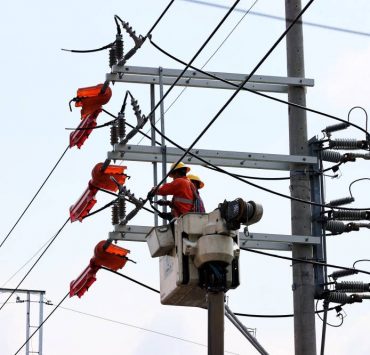No room to waver on Pogo ban

President Marcos received a long-standing ovation in Congress and widespread public approval last July when he declared unequivocally during his third State of the Nation Address an outright ban on Philippine offshore gaming operators (Pogos), a sector that thrived during the Duterte administration but have since fallen from favor.
This, as many Pogos are suspected of having “branched out” into crime, from money laundering to cybercrime, prostitution, human trafficking, brutal torture, and even murder, as proven by the successive raids over the past two years that yielded evidence of these criminal activities.
But with less than three months left before Mr. Marcos’ self-imposed deadline at the end of the year for the phaseout of all Pogos, there is still no clear framework for how exactly these outfits will wind down their operations.
The extent of the ban and the process for getting rid of them have not been clearly defined, leading to ambiguity that could sabotage the President’s timeline.
Will they be ordered to terminate any lease contracts for their premises, for example? And what will happen to offshore gaming hubs operating outside of the purview of the Philippine Amusement and Gaming Corp. (Pagcor) such as those in economic zones? Clear answers have yet to be given.
‘Technology transfer’
Also, while the Department of Labor and Employment had committed to find alternative employment or livelihood opportunities for the estimated 41,000 Filipinos all over the country working in this sector who stand to lose their jobs, progress has been wanting.
A raid last week of 3D Analyzer Information Technologies Inc. office on Macapagal Boulevard in Pasay City for suspected Pogo operations a mere 650 meters from the Senate building also fanned concerns that some Filipinos themselves may now be operating their own Pogos that are usually run by Chinese nationals that are moving out of the country.
Of the 300 employees working in 3D Analyzer raided by the Presidential Anti-Organized Crime Commission, about a third were Filipinos.
“This is ‘technology transfer’ in an evil way. A criminal activity has been ‘transferred’ to the locals,” Sen. Sherwin Gatchalian lamented, which means that the long-drawn-out battle versus Pogos was “far from over.”
Ripple effect
Even now, Pagcor chair Alejandro Tengco wants 12 firms related to gaming to be spared from the ban since their workers serve gaming companies in the United States, Canada, and Europe and thus are supposedly not of the same mold as the soon-to-be banned Pogos.
Social costs
But economic managers including Arsenio Balisacan, Secretary of the National Economic and Development Authority, have been consistent in saying that while these Pogos are indeed pumping money into the economy, the social costs clearly outweigh the supposed benefits.
“The Pogo contributed less than one half of one percent of our GDP as of 2022. But I think, more important than just the economic numbers, I think the social cost and reputational cost to the country of hosting this kind of businesses is not good at all,” Balisacan had said.
Given these ills that come together with Pogos, concerned agencies of government, from the regulator to the local government units and national government agencies should not waver and commit themselves to execute Mr. Marcos’ directive.
Pogos in all their forms should be gone by the end of the year, no matter how tempting the potential revenues could be.
Any sign of weakness signals to the underworld that there may just be a space for them to operate and that it is possible that if not stopped now, they will come back to life under a new and perhaps friendlier administration.
And given all of the crime associated with Pogos, that is one scenario that must not come to pass. Indeed, resurrecting Pogos will mean resurrecting criminal and illegal activities, too.





















